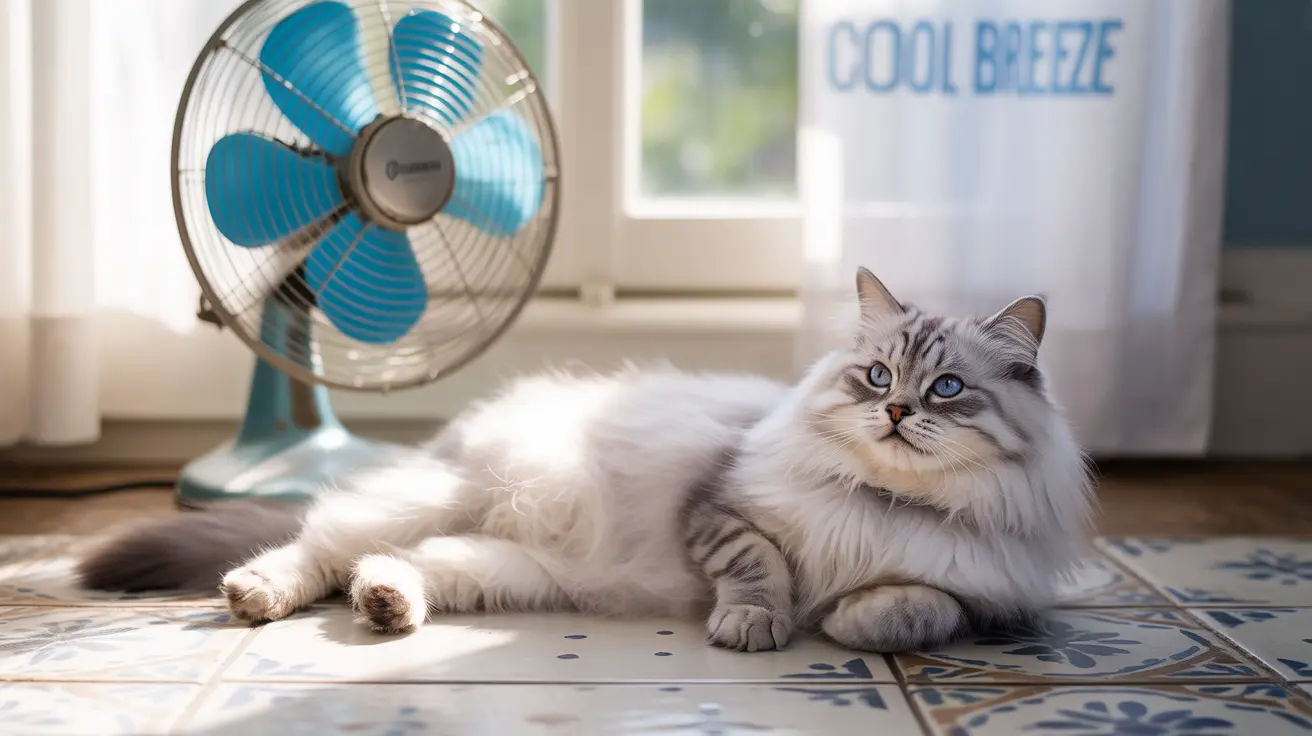When summer temperatures soar, our feline friends can develop uncomfortable skin conditions, including cat heat rash. This common but often overlooked condition can cause significant discomfort for cats and requires prompt attention from pet owners. Understanding how to identify, treat, and prevent heat rash is crucial for maintaining your cat's skin health during hot weather.
In this comprehensive guide, we'll explore everything you need to know about cat heat rash, from early warning signs to effective treatment options and prevention strategies.
What Is Cat Heat Rash?
Cat heat rash, also known as miliaria or prickly heat, occurs when excess heat and moisture become trapped against your cat's skin. This condition typically develops in areas where skin folds exist or where fur is sparse, such as the belly, armpits, and groin region. The trapped heat and moisture can lead to inflammation, irritation, and potentially painful skin eruptions.
Identifying the Signs of Heat Rash
Early detection of heat rash is crucial for preventing more serious complications. Common symptoms include:
- Red, irritated skin patches
- Small bumps or blisters
- Excessive grooming in specific areas
- Scratching or signs of discomfort
- Warm or hot skin to the touch
- Hair loss in affected areas
Risk Factors and Causes
Several factors can increase your cat's likelihood of developing heat rash:
- High humidity levels
- Prolonged exposure to hot weather
- Obesity or excess weight
- Poor ventilation in living spaces
- Thick fur or double coats
- Medical conditions affecting the skin
Treatment Options for Cat Heat Rash
Immediate Care Steps
When you notice signs of heat rash, take these immediate actions:
- Move your cat to a cool, well-ventilated area
- Gently clean the affected area with mild, pet-safe soap
- Pat the area dry thoroughly
- Apply veterinarian-recommended cooling compounds
Professional Treatment
For moderate to severe cases, veterinary treatment may include:
- Prescription anti-inflammatory medications
- Medicated shampoos or sprays
- Antibiotics if secondary infection is present
- Professional grooming recommendations
Prevention Strategies
Preventing cat heat rash is easier than treating it. Consider these preventive measures:
- Maintain proper indoor temperature and ventilation
- Provide access to cool resting areas
- Regular grooming to prevent matted fur
- Keep your cat at a healthy weight
- Monitor outdoor time during hot weather
- Regular skin checks, especially in summer months
When to See a Veterinarian
Seek veterinary care if you notice:
- Severe redness or swelling
- Signs of infection (pus, odor)
- Changes in behavior or eating habits
- Fever or lethargy
- Worsening symptoms despite home care
Frequently Asked Questions
What are the common signs and symptoms of heat rash in cats and how can I recognize it early?
Early signs of cat heat rash include red, irritated skin, small bumps or blisters, excessive grooming, and warm or hot skin to the touch. Watch for these symptoms particularly in areas with less fur, such as the belly and armpits.
How should I treat my cat's heat rash at home, and when is it necessary to see a veterinarian?
For mild cases, move your cat to a cool area, keep the affected area clean and dry, and use vet-approved cooling compounds. See a veterinarian if you notice signs of infection, severe redness, or if symptoms persist despite home treatment.
What causes heat rash in cats, and which cats are at higher risk during hot weather?
Heat rash is caused by trapped heat and moisture against the skin. Overweight cats, those with thick fur, and cats living in humid environments are at higher risk. Breeds with skin folds are also more susceptible.
How can I prevent heat rash in my cat during the summer or in hot, humid conditions?
Prevent heat rash by maintaining good ventilation, providing cool resting areas, regular grooming, and limiting exposure to hot, humid conditions. Keep your cat at a healthy weight and monitor outdoor time during hot weather.
Are there any special considerations or dangers when using topical treatments for heat rash on cats?
Never use human medications without veterinary approval, as cats are sensitive to many ingredients. Use only pet-specific products recommended by your veterinarian, and monitor the application area for adverse reactions.
Conclusion
While cat heat rash can be uncomfortable for your feline friend, it's typically manageable with proper care and attention. By understanding the signs, implementing preventive measures, and knowing when to seek veterinary care, you can help keep your cat comfortable and healthy during hot weather seasons.






